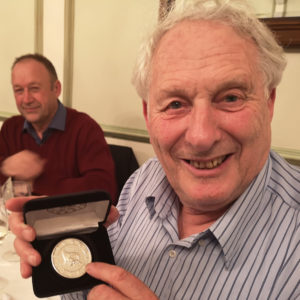Michael James (Jim) Salinger
Dr Jim Salinger is a noted international climate scientist whose achievements include the first detection of global warming in 1976, leading Southern Hemisphere research on climate change, and being awarded the NZ Science and Technology medal from the Royal Society of NZ in 1994.
The World Meteorological Organisation’s Commission for Agricultural Meteorology Commission last year honoured him with an award for his exceptional service.
A prolific communicator on climate change (credited with at least 190 publications identified by Google Scholar), Jim has been involved for more than 40 years in research on climate in NZ and the South Pacific.
Born in Dunedin in 1947, he completed a Bachelor of Science from the University Otago in 1971, a Doctor of Philosophy from Victoria University of Wellington in 1981 and a Master of Philosophy in Environmental Law from the University of Auckland in 1999.
Jim first worked as a scientist for the University of Otago Medical School from 1972-1975. Since then he has worked as a lecturer in geography (Victoria University of Wellington, 1976-1979), a senior research associate (University of East Anglia in England, 1980-1981), senior agricultural meteorologist (NZ Meteorological Service 1989-1992), and senior climate scientist with the National Institute Water and Atmospheric Research after the formation of the CRIs.
An honorary research fellow of the University of Auckland since 1994, he has been –
- A member of the World Meteorological Organisation (vice-president ca. 1991);
- NZ’s principal delegate to the World Meteorological Organisation’s Commission for Agricultural Meteorology from 1986 to 2010;
- President of the World Meteorological Organisation’s Commission for Agricultural Meteorology from 2006 to 2010;
- A lead author for the Intergovernmental Panel on Climate Change, which collectively was awarded a Nobel Peace Prize in 2007 “for their efforts to build up and disseminate greater knowledge about man-made climate change, and to lay the foundations for the measures that are needed to counteract such change”. His contributions have included lead authorship of most New Zealand-based scenarios “to facilitate impact and policy studies”.












